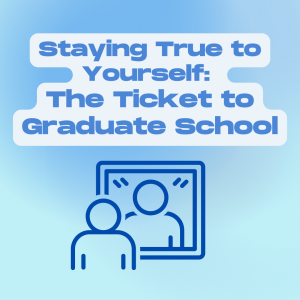By Sahiti Bhyravavajhala, former Health Professions Peer Ambassador
When I first walked onto the bustling UConn campus as a petrified sophomore (thank you COVID), I felt immensely lost. With so many organizations and causes to be involved with, I did not even know where to start. Knowing I had the goal of becoming a doctor in mind, I struggled with the thought of balancing my other passions with my pre-medical ones. The pressure of fitting into the mold of the stereotypical, perfect pre-medical college student who juggled 50 clubs and was the president of half of them whilst taking 21 credits and publishing journal articles weighed upon me. I wanted to do it all, but in the sprawling streets of UConn’s campus, I felt small and had no idea where to begin.
Starting activities seemed more about checking off boxes than finding organizations I was excited about. Research, volunteering, and leadership: I needed to make sure I was in all of them. The delusion that they all had to be related to the medical field was also pervasive in my mind. Though I had passions for activities in teaching and education, I was prepared to put that on the backburner if it got me to the end goal of medical school. While this may sound like an insane thought, I also know for a fact that the majority of us pre-health students think like that. With medical school being so incredibly competitive and more requirements popping up with every application cycle, we are all just trying to do our best to get where we want.
As I continued through my sophomore year, I started to figure out what I enjoyed and what I did not. Experimenting by attending different club meetings and discussing with my upperclassmen friends what their interests were helped me realize that the ticket to medical school was not creating an idealized version of myself but staying true to myself. While we all think it’s better to put on a facade to convince the admissions committees that you are dedicated to the medical field, I think it is better to show that you are your own genuine and individual person. Being able to speak wholly and excitedly about your extracurriculars fares far better in an interview than playing up to what you think the interviewers want. After all, honesty is a quality you absolutely want displayed in your healthcare provider.
Being honest with myself means connecting with my identities and people. Working in both the Asian American Cultural Center and the Rainbow Center helps me understand the role that these identities play in how I interact with people. It develops my skills in cultural competence and best of all, connects me with new and interesting people, which is what I would be doing every day as a physician. As for my interest in education, it aids in improving my communication and organizational skills, which is just as important to becoming a good doctor as knowing the anatomy of the kidneys.
If I could leave you all with one thing, it would be to do what you truly love in these four years that you have. If that means joining the ultimate frisbee team or learning how to knit, you deserve to do what makes you happy. Besides, college is just as much about making new connections as it is about advancing your future career. As you pursue your passions, you grow into the best possible version of yourself that can develop into the best possible health practitioner.
Sahiti is a former Health Professions Peer Ambassador and UConn alum (Class of 2024), and is a current student at UConn School of Medicine. Click here to learn more about Sahiti’s experience at UConn as an undergraduate student.